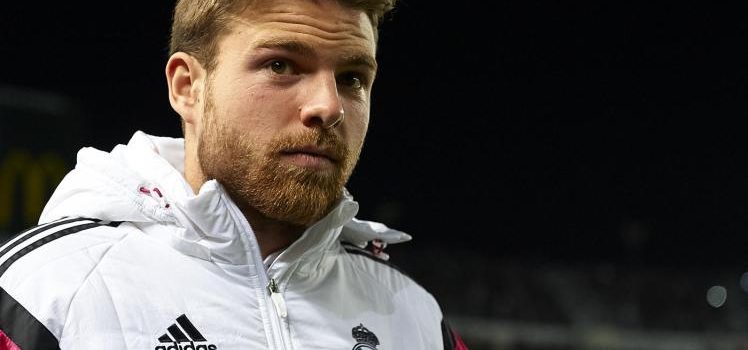This week brought an unhappy two years for Asier Illarramendi to an end when it was confirmed that he had resigned for Real Sociedad. Following his move to Real Madrid in the summer of 2013, he failed to settle in the Spanish capital and remained on the fridges of the first team.
Now in his mid-twenties his need and desire for first team football, and the realisation that he was falling further down the pecking order at Madrid, meant he had to move on.
There was interest in England and Italy, but a return to the Basque club was always going to be difficult to turn down. He will return to the club that he developed at and will figure under David Moyes, who is entering his second season in charge of Sociedad.
Why he struggled
It is difficult to pinpoint the exact reason why the move to Madrid did not work out for Illarramendi. The move certainly seemed a natural progression following his emergence at his boyhood club. He was named as the breakthrough player in his final season and having played for the successful Spanish Under 21 side it appeared the logical move. With Xabi Alonso firmly established as the holding player, he was unlikely to figure immediately but there was more of an eye on the future.
However, he struggled to stamp his authority on the side in Alonso’s absence and coach Carlo Ancelotti seemed reluctant to trust his young midfielder. Following Alonso’s departure for Bayern last summer and the arrival of Toni Kroos, it certainly seemed that he would form a partnership alongside the German playmaker.
Unfortunately lack of consistent form meant that Ancelotti even played a centre back out of position instead of Illarramendi in the Champions League, which really signalled the end of his time in Madrid.
Not the first young player to not establish himself at Real
He is not the first young player to not establish himself at one of the biggest clubs in the world and should not be judged purely on this fact. Playing for Madrid carries more pressure than almost any other club and not quite reaching the level on a consistent basis can be a result of outside factors.
The crowd expects big names and huge performances and they are not renowned for their patience with younger players.
Should thrive at his boyhood club
Blessed with the ability to break up play and begin attacking moves there is no reason why he should not thrive at Sociedad. His new coach is slightly more conservative than many others in Spain and the defensive midfield position is one that Moyes is particularly keen on. It is likely that he will now form the backbone of the side for the next few seasons.
There is no doubting that this is a setback in Illarramendi’s career and clearly the move did not work out as hoped. However, at 25 he still has plenty of time to change this around and perhaps even regain his place in the national squad.
Written by Andy Hunter
Follow Andy on Twitter @hunter67980
Like O-Posts on Facebook
You can also follow O-Posts on Twitter @OPosts

